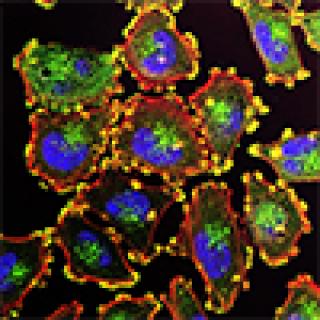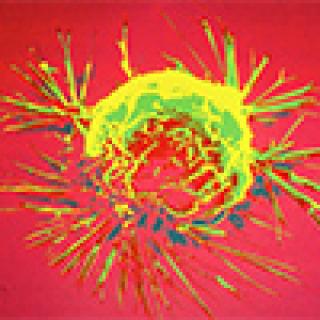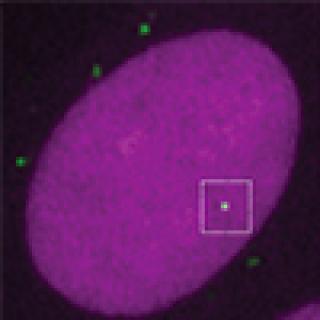Our Discoveries
New genetic analysis will help researchers understand how diffuse large B-cell lymphoma subtypes respond to experimental therapies
By looking for about 100 potential genetic abnormalities in the DNA of certain lymphomas, researchers can now assign individual cases of DLBCL to one of seven subtypes. The new classification system will better equip researchers to recognize the impact of experimental therapies on subsets of patients whose cancers share key clinical and biological features.
Read MoreMouse models and patient data suggest potential biomarker for immunotherapy response in melanoma
Immune checkpoint inhibitors are an effective treatment for about a third of patients with metastatic melanoma. Now, mouse models and patient data suggest these cancers are more likely to respond to immunotherapy if their cells resemble fully developed melanocytes rather than less mature precursor cells.
Read MoreCCR researchers show testing with combined biopsy method improves prostate cancer diagnosis
A method of testing for prostate cancer developed at the Center for Cancer Research leads to more accurate diagnosis and prediction of the course of the disease, according to a new study published in the New England Journal of Medicine. Peter Pinto, M.D., Investigator in the Urologic Oncology Branch, led the study and says this method, which combines systematic biopsy, the current primary diagnostic approach, with MRI-targeted biopsy, is poised to greatly improve prostate cancer diagnosis, thereby reducing the risk of both overtreatment and undertreatment of the disease. To see all open prostate cancer trials, click here.
Read MoreA new set of genes linked to metastasis in melanoma
CCR researchers have found that melanoma can reactivate gene expression patterns that are usually active in melanoblasts, facilitating their progression to metastatic behavior. These newly discovered melanoblast genes have the potential to provide a new source of pathways that could be tapped to develop new treatments for melanoma.
Read MoreIrinotecan shrinks DNA-repair-deficient breast cancers in patient-derived mouse models
Laboratory studies uncover genetic features that make some triple-negative breast cancers vulnerable to an overlooked treatment option.
Read MoreNew study overturns conventional understanding of how HIV infection occurs
Researchers have succeeded in imaging where and when the protective coating that surrounds HIV is disassembled, a critical step in the viral replication process. Their observations show that the virus keeps its protective coating after entering the nucleus of a cell and then begins replicating, which is counter to what most scientists have thought for decades.
Read MorePotent new LDHI inhibitor disrupts tumor growth in mice
Researchers have identified a potent LDH inhibitor, which can disrupt the energy production of tumors in mice. After exposure to the LDH inhibitor, the cancers cells began to rely on a different form of energy production, which could also be disrupted by using a second drug. Combining the two drugs had a potent anti-cancer effect.
Read MoreResearchers identify protein essential for assembling cells’ energy-producing machine
CCR researchers have discovered that the protein Bcs1 acts as the element that facilitates the transport of iron-sulfur protein, or ISP, across the inner membranes of mitochondria, the cell’s power plant. ISP is needed for the assembly of Complex III, a key element of the respiratory chain, which ensures that nutrients are converted to ATP, energy that cells need.
Read MoreNew tool catalogs thousands of previously unknown viruses
In the quest to study two cancer-causing viruses, a team of researchers has uncovered a wealth of previously unknown viruses, some with very unusual properties. The work could one day help identify viruses associated with cancer and other disease.
Read MoreT-cell stimulation could be used to target cancers with common TP53 gene mutations
Researchers in the Center for Cancer Research have found that circulating lymphocytes can be stimulated in the laboratory to generate cells that can recognize TP53 gene mutations. Mutations to the TP53 gene are found in about 40 percent of all cancers, making this process a potentially significant step forward in fighting many types of cancer.
Read More








